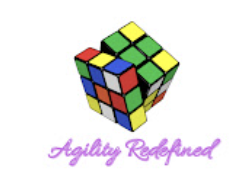The Run, Grow, Transform (RGT) model is a strategic framework used by organizations to allocate resources and prioritize initiatives based on their nature and strategic importance. It categorizes projects and activities into three main areas:
- Run: These are activities that are essential for day-to-day operations. They keep the organization running smoothly and efficiently, ensuring stability and reliability.
- Grow: These initiatives are designed to fuel the organization’s growth. They involve expanding market share, increasing revenue, or improving competitiveness.
- Transform: These are high-impact, strategic projects that drive significant changes in the organization, often related to innovation, digital transformation, or disruptive market shifts.
Benefits:
- Resource Allocation: The RGT model helps organizations allocate resources more effectively by balancing operational stability, growth, and innovation.
- Strategic Alignment: It ensures that initiatives align with the organization’s strategic goals and priorities.
- Risk Mitigation: By categorizing projects, organizations can manage risk more proactively and allocate resources accordingly.
- Innovation Focus: The model emphasizes the importance of transformative initiatives, fostering innovation and adaptability.
- Efficiency: RGT streamlines decision-making by providing a structured approach to prioritize and manage projects.
Importance:
- Strategic Clarity: It provides clarity on where to focus resources and efforts, preventing organizations from spreading themselves too thin.
- Adaptability: The model helps organizations adapt to changing market conditions and customer needs.
- Balanced Portfolio: RGT ensures a balanced portfolio of projects, considering both short-term and long-term objectives.
Implementation:
- Categorize Initiatives: Classify existing and proposed projects or activities into Run, Grow, or Transform categories.
- Resource Allocation: Allocate resources based on the strategic importance of each category. Run activities may receive steady resources, while Grow and Transform initiatives may require additional investments.
- Regular Review: Continuously assess the portfolio to ensure alignment with the organization’s strategic goals. Adjust the allocation of resources as needed.
- Communication: Communicate the RGT model and its principles throughout the organization to ensure that everyone understands the strategic priorities.
Implementing the RGT model requires a clear understanding of the organization’s strategic objectives and a commitment to aligning projects and resources accordingly. It fosters a more strategic and adaptive approach to managing an organization’s activities and investments.
